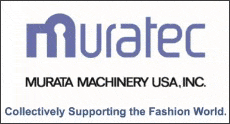
 |
|---|
 |
 |
 |
 |
 |
 |
 |
 |
 |
 |
 |
 |
 |
 |
 |
 |
 |
 |
 |
 |
 |
 |
 |
 |
 |
 |
 |
 |
 |
 |
ROCKY TOP RAMP-UP
Parkdale celebrates innovation, $145 million investment in Tenn.
Posted October 11, 2017
By Devin Steele (DSteele@eTextileCommunications.com)
MOUNTAIN CITY, Tenn. – Parkdale, the largest producer of spun yarn in the U.S., strives to be the best in the world at what it does, according to company President & CEO Andy Warlick.
But that would not be possible without investing in technology put it at the forefront of its craft, he said.
On October 6 – Manufacturing Day in the U.S. – Parkdale hosted Tennessee Gov. Bill Haslam, other state and local officials, vendors, customers and guests at its “Celebrate Innovation” event at its flagship ring-spun yarn facility, Plant No. 16, here. The event included lunch, a tour and a ceremony. The company highlighted its recent $145 investment to add ring-spinning equipment and expand its existing footprint to include an additional 222,158 square feet.
“Some people would say we're crazy for spending that kind of money in the United States for manufacturing,” Warlick told the audience. “Well, one of the great things about being private and not having to answer to anybody is we can plow 100 percent of what we make back into technology. And our goal as a company is to be the best in the world at what we do. And I think once you go through this plant today, it's only going to reinforce that we are the best in the world at what we do. And that's what excites our Parkdale team every day when they come in knowing that our job is being the best in the world at what we do. And we're have the technology to be able to do that.”
Parkdale, eTC’s 2016 Industry Champion, employs more than 400 people at the plant, making it the largest employer in Johnston County. The expansion includes primarily Rieter and Murata equipment.
Gov Haslam said it he was grateful that Parkdale, which operates more than 20 plants around the Southeast, chose this location for the investment.
“This is a big deal, obviously here in Johnston County, but it's also a big deal in the state,” Haslam said during the ceremony. “We want to be known as the state that makes stuff. When people say, 'we're not making stuff in the United States anymore,' they're dead wrong. We're making a lot of things, a lot of world-class products right here in Tennessee. Without folks like you who do this, we would have a much different-looking state. And we're incredibly grateful. We look forward to being your partner for a long time.”
Haslam added that government does not create jobs, but private enterprises and entrepreneurs do.
“Folks like you who put capital at risk create jobs,” he said. “It’s companies like yours that invest the dollars that create jobs. In Tennessee, we get that and we will never, ever forget that.”
As part of its commitment to building a business-friendly state, Haslam added that Tennessee focuses on K-12 education and offers free tuition to students for the first two years of technical or community college.
“At the end of the day, dirt is dirt, and you can find a piece of dirt to build on in a lot of different places,” he said. “The difference is the quality of workforce. We understand it's about having the right workforce.”
Nearly three years ago, Parkdale, along with large customer Fruit of the Loom, recognized that an increasingly large demand for ring-spun yarns was on the horizon, Jon Mar, Parkdale executive vice president, said during the event.
“So we needed to figure out where to add capacity to our current footprint,” he said. “We had a lot of options on the table, but we settled on Mountain City, and for one main reason: our people here. We have what we believe to be the best workforce in the world right here in Mountain City.”
Since its founding 101 years ago, in 1916, innovation has been at the core of Parkdale’s culture, said Warlick, who recalled having worked at Parkdale plants in the summers more than 40 years ago.
“Those plants were making the same products we’re making at this plant today,” he said. “The difference was, if we were doing this scale today with those standards and that equipment back then, it would take 2,000 employees to be able to produce what 401 employees are producing today here. That’s because of the high-tech nature and the robotics and automation we have here.
“So today, you can be competitive in the U.S. in manufacturing if you're willing to invest.”







